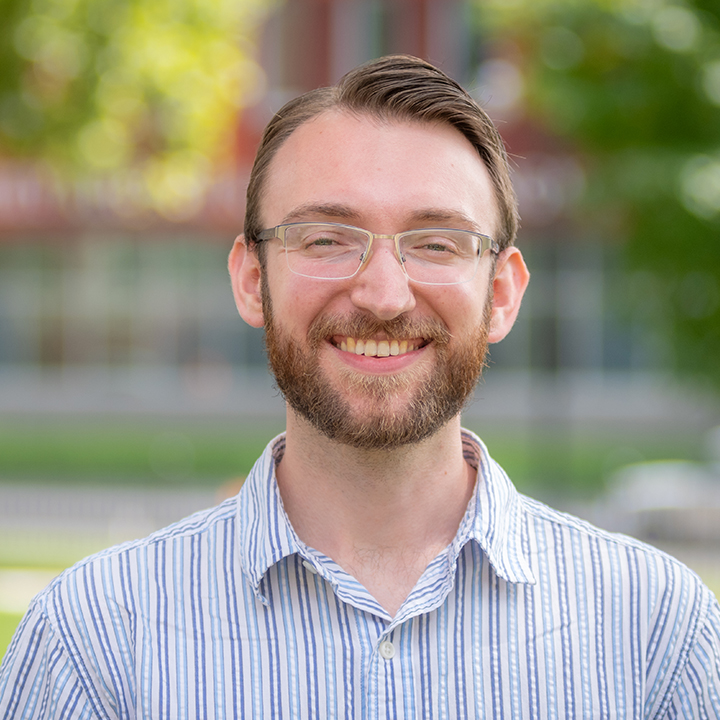Blending Boundaries
Peter Story's Societal Computing Odyssey at CMU
When Peter Story arrived at Carnegie Mellon University to begin his PhD in Societal Computing, he brought with him a surprising background for a computer scientist: a liberal arts degree from Gordon College. This unique starting point would prove to be a strength in a program designed to bridge the gap between technology and society.
"Coming from a liberal arts background, I was drawn to the program's emphasis on usable security and privacy," Story recalls. "At Gordon, we had discussions about ethics and morality, even in our computer science courses. That primed me to think about the societal implications of technology."
Story's journey to CMU wasn't direct. After graduating from Gordon, he spent a year working as a full-stack developer. "That year gave me practical experience and time to prepare for grad school," he explains. "When I looked at where the most interesting research in usable security and privacy was happening, all roads led to Carnegie Mellon."
The Societal Computing PhD program at CMU is designed to tackle complex challenges at the intersection of computation, society, and policy. For Story, this interdisciplinary approach was a perfect fit. "The program allowed me to combine my technical skills with my interest in how technology impacts people," he says.
One of the unique aspects of the program that Story appreciated was its flexibility. "I started on a more technical project, analyzing smartphone apps and privacy policies," he explains. "But after a couple of years, I wanted to pivot towards nudging – trying to help people adopt security and privacy tools. The program supported that shift."
This flexibility is built into the curriculum, which includes a mix of computer science fundamentals, network analysis, and courses in management, law, and policy. Story found particular value in the research methods course. "Learning how to do coding of text, thematic coding, how to write good survey questions and conduct interviews – these skills prepared me for my first major independent study on increasing adoption of Apple Pay."
As Story progressed through the program, he found himself increasingly drawn to the teaching aspects of academia. "The computer science pedagogy course was very helpful," he says. "It showed me the craft of being a good teacher and reinforced my desire to find a position with a balance of teaching and research after graduation."
"The strength of the program is that there's a lot of thought, both from faculty and students, on the applications and impact of our work. We're not just doing science for the sake of science, but with society in mind."
This desire led Story to his current position as an assistant professor at Clark University. "At Clark, I have time to conduct research while also teaching two courses a semester," he explains. "It's not that common to find a position that balances research and teaching, and I'm grateful that my experience at CMU prepared me for this role."
Story's work at Clark reflects the interdisciplinary nature of his training. He's currently working on building technology to protect journalists from targeted cyber attacks. "I had to think about who would be the right group to deploy this for," he says. "Based on my understanding of the economics of cybercrime, journalists emerged as a good target audience for this system."
Reflecting on his time in the Societal Computing program, Story emphasizes the importance of its focus on real-world impact. "The strength of the program is that there's a lot of thought, both from faculty and students, on the applications and impact of our work," he says. "We're not just doing science for the sake of science, but with society in mind."
This focus on societal impact is increasingly relevant in today's rapidly evolving technological landscape. As advancements in areas like artificial intelligence, cybersecurity, and human-computer interaction continue to shape our world, the need for technologists who can consider the broader implications of their work is more crucial than ever.
For students considering the Societal Computing PhD program, Story offers this advice: "Read about the research being done in the department. The work is rigorous, but also very likely to have a strong positive impact on the world. And if you get a chance to visit, definitely do. The collaborative, friendly environment is something you need to experience firsthand."
As Peter Story continues his journey, now shaping the next generation of computer scientists at Clark University, he carries with him the interdisciplinary approach and focus on societal impact that define CMU's Societal Computing program. In a world where technology and society are increasingly intertwined, graduates like Story are well-positioned to ensure that our digital future serves the best interests of humanity.
